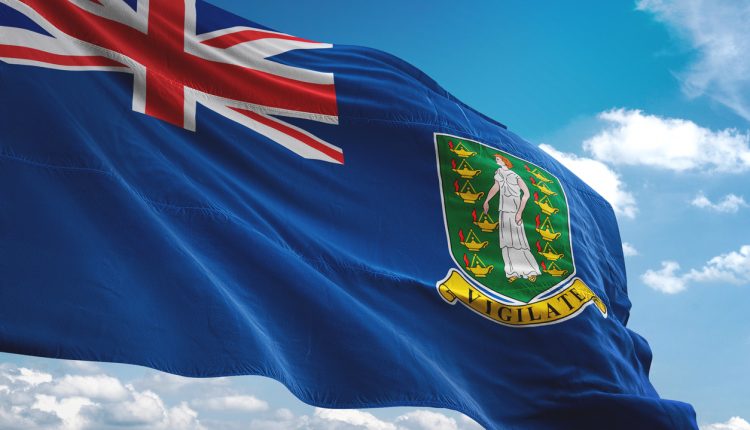The British Virgin Islands: A Safe Harbour for Security Tokens
The BVI has proven itself to be a popular jurisdiction for crypto-related projects, particularly initial coin offerings (ICOs).
As investor and business interest shifts from ‘utility token’ offerings to ‘security’ tokens, Peter Colegate and Rebecca Jack at Appleby, analyse how the BVI is suitable to this adapted market, noting applicable regulations, offshore trends and possible structures for such issuances.
As the bear market for ICOs continues, 2019 has so far seen a shift of investor focus away from utility tokens towards security tokens which seek to provide more predictable investment returns. With flexible and commercially-minded legislation, an innovative approach to anti-money laundering (AML) compliance, political stability and an internationally recognised securities regulatory regime, the British Virgin Islands (BVI) is well placed to assist businesses looking to securitise and digitise common assets.
TOKEN REGULATION
Utility tokens provide a means of access to a technology platform or service and derive their value from the demand for that access. The value of a security token is linked to an underlying asset or share in the profits of the venture. The nature of that asset is limited only to its ability to be tied to a token. By attributing a digital token to an otherwise illiquid asset, the token can give the asset a tradable quality, an irrefutable record of transfer, the possibility of rapid transaction settlement and the removal of costly middlemen.
Unlike other offshore jurisdictions, the BVI has not yet expressed an interest in implementing an overarching framework to govern digital assets. Instead, the primary legislation governing securities in the BVI is the Securities and Investment Business Act 2010 (SIBA). In this fast-moving sector where the technology is always running ahead of the law, this ‘watch-and-wait’ approach helps the BVI adapt quickly.
SIBA sets out an exhaustive list of financial instruments that constitute ‘investments’ and requires those who carry on, or hold themselves out as carrying on, an ‘investment business’ to obtain a licence from the BVI Financial Services Commission (FSC), subject to certain exemptions.
SAFE HARBOUR
While every token is different and requires a full regulatory review, pure utility tokens would not, generally, be deemed to be investments and therefore would not trigger licensing requirements under SIBA. Consequently, issuers, dealers, custodians and exchanges of pure utility tokens do not generally require licensing in the BVI. Conversely, most security tokens would be expected to fall within SIBA. However, as a result of SIBA’s more prescriptive approach to defining investments, certain tokens deemed generally as ‘security’ tokens may, in fact, not fall within SIBA’s ambit. Tokenised equities, debt and – where interpreted as a debt to holders – profit shares would be investments under SIBA, but their issuers could potentially benefit from a safe harbour exemption for entities issuing their own debt instruments.
Where licensing is required under SIBA, the BVI provides a clear framework for obtaining this. At the start of 2019, the BVI had over 600 licensed investment businesses. Applications can usually be handled within 4 weeks of submission to the FSC, although additional time may be required for more complex projects. Save for certain regulated open-ended tokenised funds, there is currently no requirement to produce any prospectus or offering memorandum for offers of tokenised securities in or from within the BVI, provided the securities laws of the investors’ jurisdictions are complied with. Notwithstanding this, we anticipate that most security token offerings will be carried out by private placement.
AML COMPLIANCE
Regulatory concerns over AML and KYC compliance in connection with the issuance or exchange of security tokens can be alleviated in part through programming checks and restrictions upon a token or through the exchanges upon which a token is listed. Such restrictions may, for example, prevent onward transfer of a token until the transferee has been whitelisted by a third-party KYC provider. Recent and welcome amendments to the BVI’s AML regulations permit digital verification of identities, the receipt of electronic copies of documents instead of traditional “wet ink” paper-based processes and the use of third party KYC service providers.
SECURITY TOKEN EXCHANGES
Liquidity remains elusive for security tokens. Few security token exchanges have commenced operations and those that have remain in their infancy.
The BVI is home to a number of utility token and cryptocurrency exchanges. No security exchanges have yet been licensed in the BVI. However, SIBA provides a regulatory regime for obtaining a licence to operate an investment exchange that follows the same, oft-used path as other investment businesses. There is no indication at this time that the FSC would look to restrict such applications. If approved, a BVI-based security token exchange would benefit from the recent amendments to the BVI’s AML regulations.
LOOKING AHEAD
The tokenisation of assets represents the next shift in the blockchain revolution. The BVI’s flexible corporate and regulatory regimes will continue to be at the forefront in assisting those businesses looking to launch the next generation of digital assets.
With technological innovation transforming offshore businesses and markets, Appleby has led the way amongst the offshore firms by launching a dedicated Global Technology and Innovation Group. With experts across its network of 10 offices around the world, the group supports clients across a broad range of emerging technologies.




